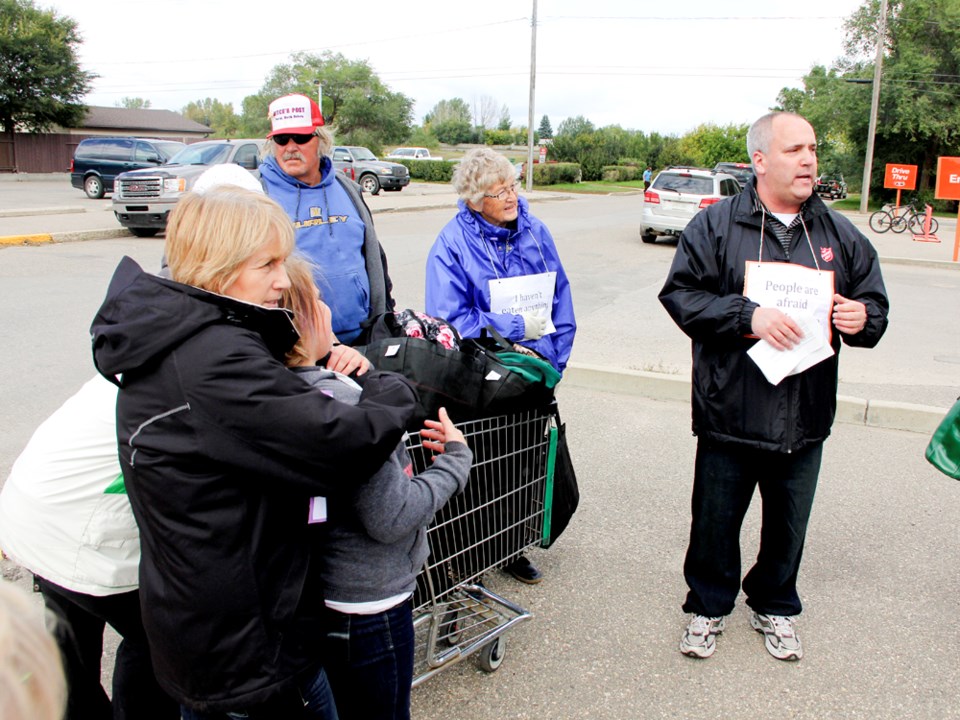In its third winter as an aid for housing insecure people in Estevan, the Warm Welcome shelter is on the brink of completing another season as a warm place for those with no other place to turn at night.
The shelter is there to assist, and Salvation Army Lieutenant and Warm Welcome spokesperson Brian Bobolo noted everyone needs assistance at some point.
“It’s difficult to conceive of a whole lifetime spent without having the need for assistance from someone else. This is just one way the Estevan community can take care of its own amongst the myriad other ways they’re doing it,” said Bobolo.
The shelter has seen steady traffic throughout the winter, averaging about five guests per night, and Bobolo noted they’ve regularly had seven or eight guests per night during some of the coldest nights in February. During last year’s open season, the shelter averaged three or four.
“People have found us. They’ve come to us to seek shelter. Our reputation has grown in the community so more and more people are aware of the program and how to find help,” said Bobolo.
For many, finding help isn’t the hard part. The Warm Welcome shelter has been visible on community boards and has hosted events and appeared in a number of stories within the pages of the Mercury.
The difficult part is accepting help, and Bobolo noted the lack of anonymity in a small community like Estevan can act as a further barrier for those who may benefit from the services the shelter provides.
“It takes a lot for anyone to ask for help period, but to also go into a shelter, there’s more to that than, say, to come for a food hamper, and that’s tough,” said Bobolo, noting collecting food hampers is generally pretty confidential.
“A lot of people try to make it on their own for a while, especially if this is a time in their lives they’re encountering really, major struggles for the first time and housing shortage for the first time. It takes a while for them to really come to the realization that they need a shelter and that a shelter would meet their needs.
“Coming into a shelter, other people see you, the volunteers see you, people who are there see you. This is a small town, so that has been difficult.”
Bobolo noted the stigma attached to homelessness in small towns is very different from the experience and acceptance of homelessness in cities.
“The other challenge we have as a community is dealing with stigma. That’s something that we all have a social responsibility to deal with and address. We as individuals may not directly be impacted by homelessness and we may not have family members and friends impacted by homelessness, we have a responsibility to build a community in which everyone is accepted and everyone is welcome and no one is judged simply by the circumstances they face.”
In smaller communities there continues to be a lot of judgment when it comes to homelessness, and that adds more complications for those who are struggling to find or maintain housing security.
“We have to keep in mind there’s a whole host of reasons why someone might need shelter assistance or food bank assistance. It could be any number of things. It could simply be family breakdown and that could happen anywhere,” said Bobolo.
“It could be a job loss, and certainly, we’re aware of that now that is a reality even here in Estevan. It has nothing to do with who a person is at their core.”
Salvation Army’s are involved in shelters all across the country, and Bobolo said he has spoken with colleagues elsewhere and the pattern is that in small towns, it takes people a little longer to go into a shelter. In a city, when the need becomes apparent, those in need are quicker to attend a shelter.
“In a big city, you can live anonymously, and if you go in for help, there’s a better chance you won’t actually know anyone there.”
Volunteers of the shelter are expected to adhere to a confidentiality agreement in order to maintain the anonymity of guests.
There are open shifts the Warm Welcome organizers are hoping to fill in the remaining weeks of the program, and they are encouraging newcomers who haven’t had any experience with the shelter yet to come see what it’s about.
“We want to end the year with a good strong volunteer base, so it’s a great opportunity for people to come forward and give back,” said Bobolo.
Those interested in learning more about what volunteering entails or asking some questions about the shelter are encouraged to call the Salvation Army to learn more about how they can help.
“It’s really about creating a welcoming presence, a non-judgmental presence, and having a willingness to give back,” Bobolo added.
The shelter organizers are aware of others who are sleeping in trailers or vehicles and shelter members reach out to encourage those individuals to come inside.
“We try to encourage them to come in, but sometimes it’s an independent spirit. There have been a few people who have come in for meals and have gone back out to their vehicles, and we welcome that as well.”
After beginning in November, the shelter will remain open until March 31.




